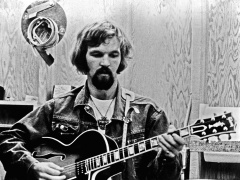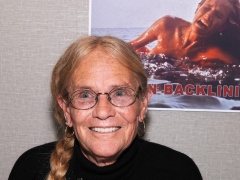
Cinematographer Elemér Ragályi, one of the greatest talents of modern Hungarian cinema, died last Thursday.
Ragályi was born in 1939 in Hungary, where he graduated at the Academy of Theater and Film with a degree in cinematography.
As a cinematographer, he worked with directors such as István Gaál, István Szabó Gyula Gazdag, Judit Elek, Pál Sándor and Ferenc András, innovating in order to give a distinctive look to iconic films.
In 1970, Gaál’s “The Falcons” won the Jury Prize of the Cannes Film Festival, in large part thanks to the camerawork of Ragályi.

In 1990, he received the television prize, the CableACE Award, of the American Society of Cinematographers for the HBO production “The Josephine Baker Story,” starring Lynn Whitfield. He was also nominated for ACE awards for his work on “Max and Helen” and “Red King, White King,” starring Tom Skerritt and Helen Mirren. He also received a cinematography ACE award for “Murderers Among Us: The Simon Wiesenthal Story.”
In 1991, as cinematographer, he shared in the success of the Best Foreign Language Film Oscar winning Swiss film “The Journey of Hope,” directed by Xavier Koller.
He received an Emmy Award for Outstanding Cinematography for HBO’s “Rasputin,” directed by Uli Edel and starring Alan Rickman, in 1996 and he was nominated for an Emmy for ABC’s “Anne Frank,” starring Ben Kingsley, in 2001.
Other credits include TV series “Maigret,” starring Michael Gambon, from 1992 to 1993, Roger Spottiswoode’s “Mesmer,” starring Rickman, in 1994, Peter Hall’s “Never Talk to Strangers,” starring Rebecca De Mornay and Antonio Banderas, in 1995, “A Kid in King Arthur’s Court” in 1995, and “Catherine the Great,” starring Catherine Zeta-Jones, in 1995.
He directed two feature films, “Csudafilm” in 2005 and “Fekete fehér” in 2006.
At the time of his death, he was working on the restoration of dozens of Hungarian classics, as part of the film restoration program of the Film Archive of Hungary’s National Film Institute.






